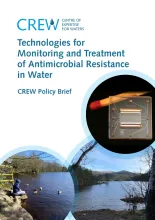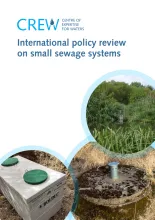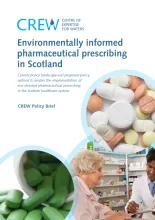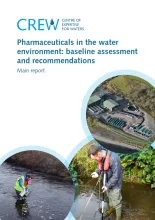Scotland’s Centre of Expertise for Waters (CREW) joins the OHBP steering group!
CREW is delighted to announce we are officially a member of the One Health Breakthrough Partnership (OHBP).
The OHBP was founded in 2017 and is a collaboration between scientists, utilities, regulators, public health specialists and policymakers, working together to tackle the interconnected challenges impacting the health of humans, nature and the environment. OHBP aims to sustainably balance and optimise health outcomes for all, leading to global health security and integrity of ecosystems.





